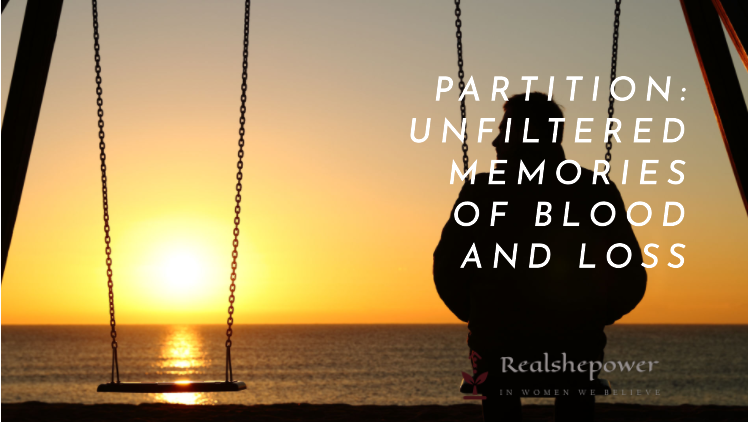The Darkness of Partition: Unfiltered Memories of Blood and Loss


Amrit was a strapping young man, a proud resident of a mixed-faith neighborhood in Rawalpindi. His life was simple, revolving around his work at a local shop, his family, and his childhood sweetheart, Meena.
But 1947 brought a storm no one was prepared for. Whispers of “partition” turned into loud declarations, and the world as Amrit knew it began to shatter. Rawalpindi, once a city of shared festivals and joint celebrations, became a cauldron of suspicion and rage.
One evening, as Amrit returned home, he found his street in chaos. Homes were on fire, and the air was thick with the harrowing screams of women and children. A mob, fueled by rumors and pent-up animosity, had decided to “cleanse” the area. Armed with axes, torches, and daggers, they moved house to house, showing no mercy.
Frantically searching for his family, Amrit stumbled upon the lifeless bodies of his parents, brutally murdered in their own courtyard. The house he grew up in was now a pyre of flames, consuming memories and dreams. In the distance, he could hear Meena’s desperate pleas, but the mob’s fury drowned out all reason.
The ensuing days were a blur of violence, desperation, and the sheer will to survive. Neighbors turned on neighbors; friends became foes overnight. Men, who once shared meals and secrets, now thirsted for each other’s blood. Women, in a bid to avoid being dishonored by the mobs, took their own lives or were killed by their own family members.
Amrit, consumed by loss and anger, joined a caravan of refugees heading to the newly formed India. The journey was fraught with danger. Trains, once symbols of progress, now arrived at stations filled with corpses. Rivers ran red, forests echoed with cries, and the road was littered with the dead and dying.
Settling in a refugee camp in Amritsar, Amrit tried to rebuild his life, haunted by the ghosts of his past. But the scars of those months ran deep. He would often wake up, screaming, reliving the nightmare of that fateful evening. The promise of a new dawn, a new nation, was overshadowed by the trauma of betrayal and loss.
Partition was not just a political event; it was a cataclysmic human tragedy. Millions were uprooted, countless lost their lives, and the socio-cultural fabric of the subcontinent was forever altered. The above narrative is but a minuscule representation of the immense suffering that marked one of the darkest chapters in the history of the Indian subcontinent.
A Call to Our Readers: Share Your Story
Partition was not merely a line drawn on a map, but a scar left on the hearts of millions. The legacy of those traumatic times lives on in the memories of survivors and the tales handed down through generations. While the pain and anguish of that era might be overwhelming, there’s healing in remembering and sharing.
We firmly believe that to truly understand the depth of that experience and to heal collectively, it’s essential to bring these stories to light. Trauma can fester in silence, but sharing has the power to heal wounds, bridge divides, and remind us of our shared humanity.
If you or your loved ones have stories from the Partition, we urge you to share them with us. Send your narratives, memories, and anecdotes to admin@real-shepower.com. Let’s not allow these tales to fade into oblivion. By sharing, we not only pay homage to the resilience and spirit of those who lived through the upheaval but also provide a space for understanding, empathy, and collective healing.
The stories of Partition belong to all of us — they are a testament to our shared past, our resilience, and our hope for a harmonious future. Let’s give them the voice they deserve.
